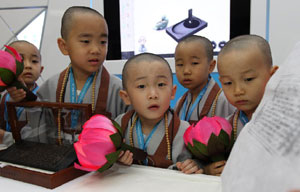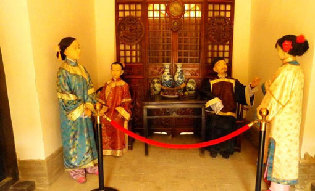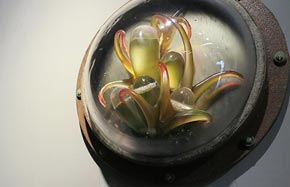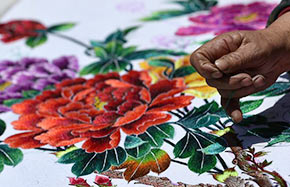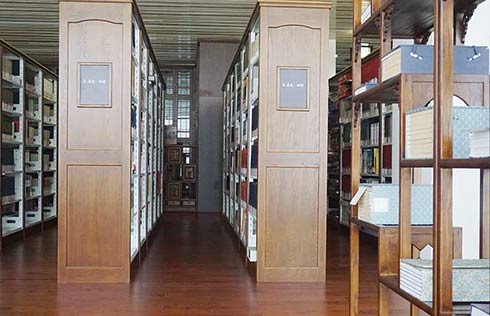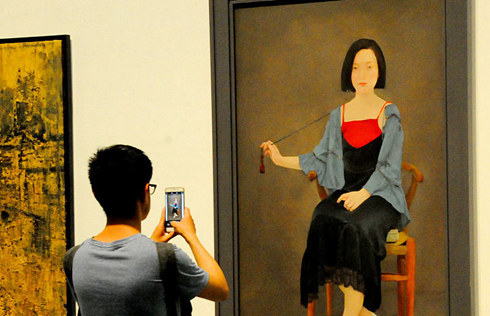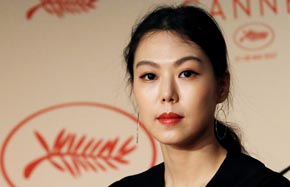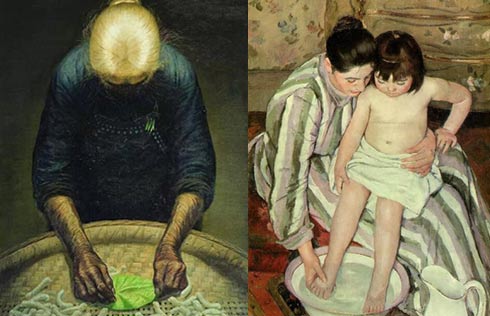Taoist leaders focus on preserving values
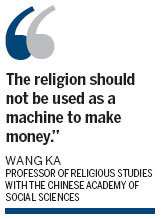
Taoist abbot Yuan Zhihong has a complicated attitude toward money: He knows his temple needs funds to make ends meet, but the commercialization of religious venues is affecting their sacred status.
"At some public memorial ceremonies, people have paid more than 1 million yuan ($163,000) to light the first incense stick," he said. "The religion has become too secular in many places."
The 58-year-old abbot at Beijing Dongyue Temple made the remarks at an eight-day seminar organized by the State Administration for Religious Affairs and attended by about 130 Taoists and religious officials, in Beijing's suburban Changping district in mid-May.
During the event, Taoists heard lectures on religious canon and discipline, China's laws and regulations, and domestic and foreign policy. Participants also discussed topics such as the commercialization of religious venues.
A Taoist for 31 years, Yuan said religious venues have received more donations in recent years as the economy has grown, yet he lamented that many temples have become profit-driven, which is contrary to the nature of the religion.
Taoism originated in China before the Qin Dynasty (221-206 BC) and has long permeated everyday life, as it exerted great influence on social customs in ancient China and on the shaping of the national consciousness.
At its core is dao (the way), which is beyond description, according to the Chinese Taoist Association. Taoists believe dao is the origin of the universe, the basis of all existing things, the law governing their development and change, and the ultimate god of Taoism.
Worshippers should not only cultivate dao but also accumulate virtue. Derived from the foundation of dao and virtue are a whole set of principles, including non-action, non-passion and non-desire, non-struggle and the pursuit of simplicity and truth.
A tool for profits
However, Li Zhijin, deputy director of the Hebei Provincial Taoist Association, who attended the seminar, complained that many Taoists now care about nothing other than money. "They ignore the disciplines and don't observe the rituals," he said.
During a 2011 memorial in Huaiyang county, Henan province, a Taoist temple auctioned off the privilege of lighting the first joss stick for 1.18 million yuan to an entrepreneur. The action led to a public outcry.
Wang Ka, a professor of religious studies with the Chinese Academy of Social Sciences, said commercialization has ruined the reputation of many religious venues.
"Ticket prices for some renowned temples are higher than 200 yuan, which is unaffordable for many people," he said in a lecture at the seminar. "The religion should not be used as a machine to make money."
Religious staff should stick to the disciplines and be dedicated to the religious issues, he added.
|
|
|
| Cute South Korean child monks | Courtyard of Family Zhang in Guxian county, Shanxi |




